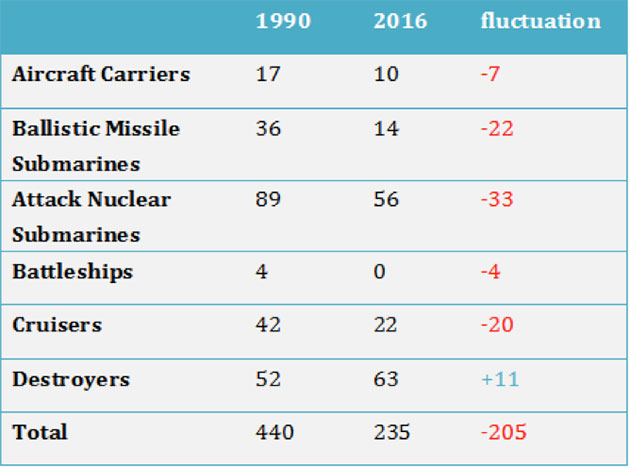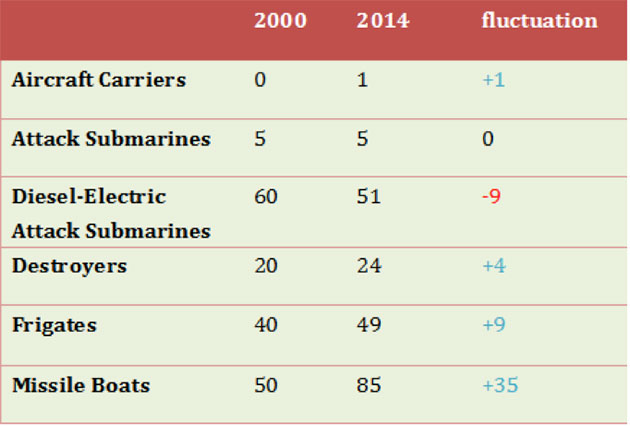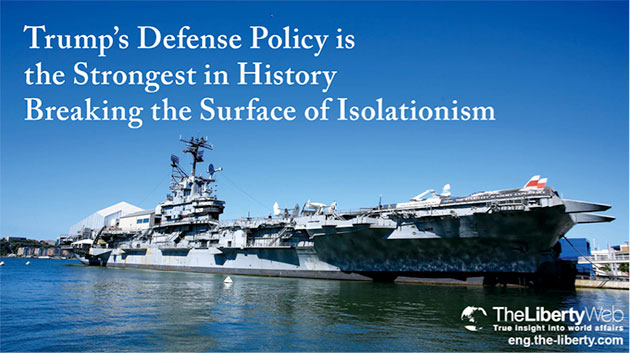Trump’s Defense Policy is the Strongest in History
Breaking the Surface of Isolationism
The world’s media is criticizing U.S. President-elect Donald Trump for his seemingly isolationist foreign policy. They are worried that it will cause a vacancy in world power and world order will go awry.
Isolationism in diplomacy means to avoid intervention in matters concerning other countries, including disarmament. In this sense, Trump’s emergence gives the impression that the U.S. will withdraw from its role as the world’s policeman.
But this is not quite true, which becomes clear if we look at the details of Trump’s defense policy.
Reversing Disarmament
Throughout the election campaign period, there was one thing that Trump’s team consistently promoted: military expansion.
Below is a summary of the proposed expansion:
- Increase the number of army personnel from 450 thousand to 540 thousand.
- Increase the number of fighter jets in the air force from 1113 to 1200.
- Increase navy service personnel from 180 thousand to 200 thousand.
- Increase the main naval body from 250 to 350 vessels.
- Revive the Philadelphia Naval Shipyard and advance American vessel construction power.
- Construct 2 nuclear submarines annually.
- Allocate US$20 billion to the naval ship construction budget.
Trump’s menu to intensify national defense stands in sharp contrast to the media reports of his supposed isolationism. Most notable is the huge budget he is proposing for naval expansion.
U.S. defense policies have continued in the direction of disarmament ever since the end of the Cold War in 1989, and the Obama administration accelerated this. Reductions in the naval budget led to America’s loss of influence in the world.
To fix this problem and make America great again, Trump’s policy will reverse the tide of disarmament. And the first step is to rebuild the navy.

Military Expansion in Response to China
The reason for naval expansion is obvious: it is a response to China’s military expansion.
In recent years, China undertook a historically significant military expansion in a bid to make the East China Sea and South China Sea part of their territory. The Obama administration put more focus on Asia through their Asia pivot scheme, but failed to stop China’s tyranny. This has caused countries in Asia to lose faith in the U.S.

Is It Like The Reagan Administration?
During the Cold War, the U.S. Reagan administration came up with the 600-Ship Navy Initiative in order to expand the navy to counter the USSR. The plan to increase the naval forces from 400 to 600 vessels was a response to the USSR’s naval expansion.
Trump’s focus on the navy is indubitably a cautionary countermeasure to China’s oceanic ambitions. This is why Trump’s policy will not simply result in isolationism.
Trump’s defense plan will shift the country away from Obama’s weak America. The media, however, only ever report Trump’s scandals and fanatical language and refuse to cover the contents of his highly practical policy.
Japan should likewise focus on strengthening national defense to counter China’s increasing menace. Japan’s sea territory is the world’s 6th largest (including the EEZ), and the current defense funds are insufficient to protect this vast area. Nuclear armament and establishing a cooperative network with the U.S. is a path Japan must consider in order to protect its own safety.



















